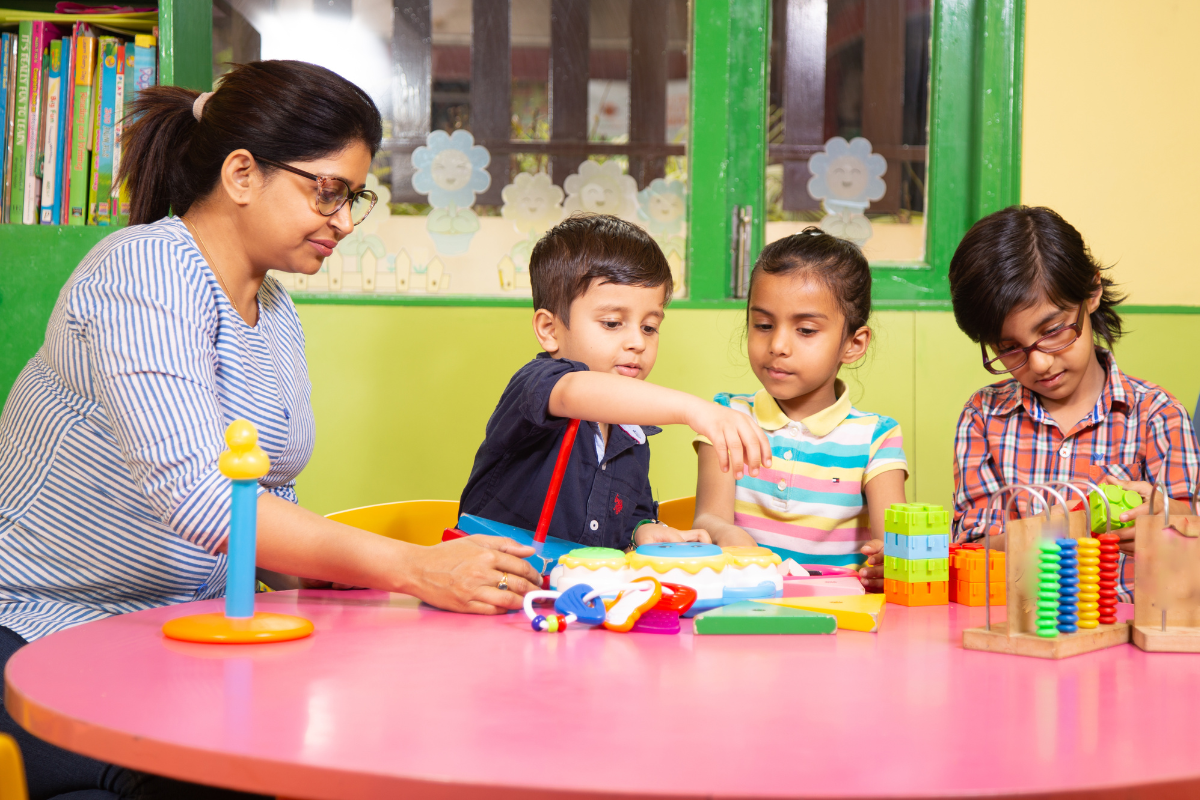
Choosing the perfect preschool for your child is a significant decision that lays the foundation for their educational journey. It’s a process that involves careful thought, research, and a bit of soul-searching.
Here are some key considerations to help guide you in making the best choice for your little one.
Understanding Your Child’s Needs and Personality
Every child is unique, with individual needs and personality traits. Some children thrive in a structured environment, while others blossom in a more flexible, play-based setting. Observing your child’s behavior and preferences can provide valuable insights into what type of preschool might suit them best. If your child is highly social and energetic, a school with ample opportunities for group activities and interactive play might be ideal. Conversely, if they are more reserved or have specific interests, a preschool that offers a variety of focused activities might be a better fit.
Educational Philosophy and Curriculum
Preschools can vary widely in their educational philosophies. Common approaches include Montessori, Reggio Emilia, Waldorf, and traditional play-based programs. Each of these methods has its own strengths and focuses, from fostering independence and self-directed learning to emphasizing creativity and imagination. Understanding these philosophies and aligning them with your educational values and your child’s learning style is crucial.
For instance, Montessori schools encourage hands-on learning and self-directed activity, which can be great for developing independent problem-solving skills. On the other hand, Reggio Emilia’s approach focuses on project-based learning and collaboration, which might be more suitable for children who thrive in group settings and creative exploration.
Teacher Qualifications and Student-Teacher Ratio
The quality of teachers and the student-teacher ratio are critical factors in ensuring a supportive and nurturing learning environment. Experienced and well-trained teachers are better equipped to provide individualized attention, understand developmental milestones, and foster a love for learning. A lower student-teacher ratio means more personalized attention and a better ability to cater to each child’s unique needs.
When visiting potential preschools, don’t hesitate to ask about the teachers’ qualifications, their experience, and their approach to classroom management. Observe how teachers interact with the children and how engaged the students seem during activities.
Safety and Cleanliness
Ensuring your child’s safety while they are at preschool is non-negotiable. A good preschool should have robust safety protocols in place, including secure entrances and exits, regular fire drills, and first-aid trained staff. The cleanliness of the facility is equally important in maintaining a healthy environment, especially since young children are prone to illnesses. Check the school’s policies on hygiene, their procedures for handling sickness, and their overall cleanliness during your visit.
Location and Schedule
Practical considerations such as location and schedule can significantly impact your decision. A preschool close to home or work can make drop-offs and pick-ups more convenient. Additionally, consider the preschool’s hours of operation and how they fit with your daily routine. Some preschools offer extended hours or flexible schedules, which can be beneficial for working parents.
Parental Involvement and Communication
A preschool that encourages parental involvement can enhance your child’s learning experience and keep you informed about their progress. Look for schools that have an open-door policy, regular parent-teacher meetings, and opportunities for parents to participate in classroom activities or special events. Effective communication between the school and parents is vital. This includes receiving regular updates about your child’s activities, milestones, and any issues that may arise.
Reviews and Recommendations
Word of mouth can be a powerful tool in your decision-making process. Talk to other parents, read online reviews, and ask for recommendations from friends, family, or pediatricians. Personal experiences can provide valuable insights into the school’s environment, staff, and overall quality.
Visiting the Preschool
Finally, visiting the preschool is an essential step in the decision-making process. During your visit, observe the classroom dynamics, the children’s behavior, and the overall atmosphere of the school. Pay attention to how the teachers interact with the students, the types of activities offered, and whether the children seem engaged and happy.
Enroll Your Child in Our International Preschool Today!
Parting Thoughts
Although choosing the perfect preschool for your child is a bittersweet journey that requires time, patience, and thoughtful consideration. By focusing on these key factors and trusting your instincts, you can find a preschool that will provide a nurturing, stimulating, and joyful environment for your child’s early learning years.
Drop us a line and we’ll be in touch soon!

